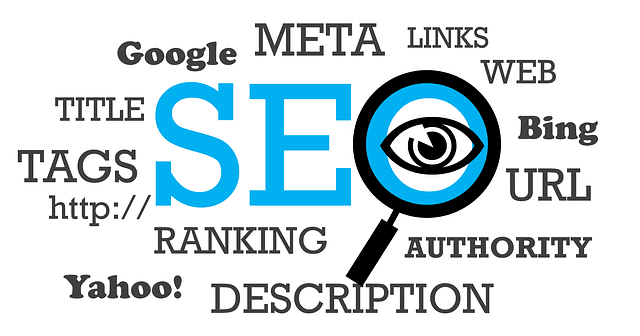
Getting Started With SEO For Your Website
If you're a website owner looking to improve your website’s results via the different search engines, then you need to start implementing different Search Engine Optimization (SEO) techniques. In this post we will discuss several basic items you should start with.
SEO Overview
According to www.ahref.com, “90.63% of all pages in our index get zero traffic from Google, and 5.29% of them get ten visits per month or less.” This isn’t a promising statistic. Search Engine Optimization (SEO) is the process of optimizing a website to improve its visibility and ranking on search engine results pages. It is a set of techniques that help a website appear higher on Search Engine Results Pages (SERPs) for specific search terms, commonly referred to as keywords.
The goal of SEO is to increase the quantity and quality of traffic to a website from search engines. The quantity of traffic refers to the number of visitors, while the quality of traffic refers to the relevance of the visitors to the website's content. By optimizing a website for search engines, website owners can attract more traffic to their website and ultimately generate more leads, sales, or revenue.
SEO involves both technical, metadata and creative elements. The technical aspects of SEO include improving a website's structure and code to make it more search engine friendly, while the creative aspects involve crafting high-quality, user-focused content that appeals to both search engines and users. Metadata includes things like keyword, optimized title and a good description.
SEO Is Constantly Evolving
One important thing to keep in mind about SEO is that it is a constantly evolving field. Search engine algorithms are constantly changing, and what worked well for SEO in the past may not be effective today. According to Moz.com, in 2020 Google made 4500 changes to its search algorithms.
For example, in the past, it was common to engage in "black hat" SEO techniques such as keyword stuffing, link farming, and hidden text to manipulate search engine rankings. However, these practices are now considered unethical and can lead to penalties or even a ban from search engines.
Today, search engines place a strong emphasis on user experience, and website owners need to focus on creating high-quality, engaging content that provides value to users. This means that having a content strategy that includes a mix of text, images, and videos is crucial for SEO success.
Another important trend in SEO is the increasing importance of local SEO. As more people use their mobile devices to search for local businesses, it's essential to have a strong local SEO strategy in place. This includes creating a Google My Business profile, optimizing your website for local keywords, and building local backlinks.
Finally, the rise of voice search is another important trend in SEO. As more people use voice assistants like Siri, Alexa, and Google Assistant to search for information, website owners need to optimize their content for voice search queries. This means using natural language and long-tail keywords in your content, as well as providing concise, direct answers to common questions.
The Goal - Organic Search
Organic search refers to the results that appear in Search Engine Results Pages (SERPs) based on their relevance to the search terms entered by the user, rather than their placement as a paid advertisement.
In other words, organic search results are the non-paid search results that appear in response to a user's search query, ranked in order of their relevance to the query. They are sometimes referred to as "natural" search results, and they are determined by the search engine's algorithm, which takes into account factors such as the website's content, structure, and backlinks.
Organic search is an important aspect of SEO, as website owners aim to optimize their website's content and structure to appear higher in the organic search results for their target keywords. Appearing at the top of organic search results can drive more traffic to a website and increase its visibility, credibility, and revenue.
While organic search results are not paid for directly, website owners can invest time and resources in optimizing their website for search engines and improving their visibility in organic search results. This can include techniques such as keyword research, on-page optimization, link building, and content creation, among others.
Creating a Basic SEO Plan
Creating an SEO plan is an essential step for website owners who want to improve their website's visibility and ranking on search engine results pages. Here are some steps to consider when creating an SEO plan:
- Define Your Goals: Before starting your SEO plan, define your goals. What do you want to achieve with your SEO efforts? Do you want to increase traffic to your website, generate more leads or sales, or improve your website's visibility and credibility? Having clear goals will help you measure the success of your SEO plan and stay focused on what's most important.
- Conduct a Website Audit: Start by conducting a website audit to identify any technical issues that may be hindering your website's search engine optimization. This could include issues with your website's structure, code, or page speed. By identifying and fixing these issues, you can improve your website's search engine rankings and user experience.
Basic SEO Actions
As stated, SEO is a very complex and time consuming topic. If you are new to SEO, here are some key items to get started with:
- Keyword Research: Identify the relevant keywords and phrases for your website that people are using to search for content like yours. Use tools like Google Keyword Planner to find the right keywords.
- On-Page Optimization: Ensure that your website pages have relevant and unique page titles, meta descriptions, and header tags (H1, H2, H3). Optimize your content for the identified keywords and ensure that your website has a clear hierarchy of content and internal linking.
- Site Architecture: Ensure that your website has a clear structure, with easy-to-navigate pages and clear URLs that describe the content of each page. Use a sitemap to help search engines understand your website's structure and content.
- Mobile-Friendliness: Your website should be mobile-friendly and should load quickly. Mobile optimization is essential since more than 50% (2021 report by Statista) of website traffic comes from mobile devices.
- Content Quality: Ensure that your website content is high-quality, relevant, and provides value to your target audience. Consistently add fresh content and optimize it for the identified keywords and topics.
- Backlinks: Acquire high-quality backlinks from authoritative websites in your industry. Backlinks are crucial in building authority and visibility for your website in search engines.
- Google My Business: If your business has a physical location, ensure that you have a Google My Business profile. This listing will help your business show up in local search results.
- Social Media: Having an active social media presence can be beneficial for SEO, as it can drive traffic to your website and help you build backlinks. Make sure to share your website content on social media and engage with your audience.
- Analytics and Tracking: Use tools like Google Analytics to track your website's performance and gain insights into how users are interacting with your site. Analyze data such as bounce rate, time on site, and conversion rates to identify areas for improvement.
- Local SEO: If your business has a physical location, consider optimizing your website for local search. This involves creating local business listings on directories such as Google My Business and Yelp, adding location-specific keywords to your website content, and getting local backlinks. This can help your business show up in local search results and drive more traffic to your website.
In Summary
Remember, SEO is an ongoing process that requires continuous monitoring and adaptation to keep up with changes in search engine algorithms and user behavior. By following best practices and staying up-to-date on the latest trends and techniques, website owners can improve their website's visibility in search engine results pages and attract more traffic to their website.
Does your business need help with SEO?
Does your business need help with SEO? At MBCS, we can help you with SEO, website services and lead generation! We offer a variety of SEO and Lead Generation offerings that will meet your needs at competitive prices. Contact us today to learn more.



